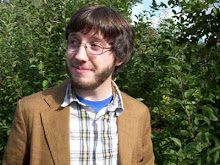Last week, I read Michael Chabon’s “Manhood for Amateurs,” a collection of personal essays about the author’s experiences as a father and as a man in general. I was kind of wary about reading it—sometimes learning too much about an author’s personal life is detrimental to how much you like their writing—but after the first few essays, that feeling dissipated. At some points, I think reading these essays even shed some light on some aspects of Chabon’s novels.
The book is broken down into thematic sections, each sticking to the format of a “handbook” of sorts for being a modern man. The section titles include “Techniques of Betrayal,” "Patterns of Early Enchantment, and “Tactics of Wonder and Loss”, which I thought was a clever way to tie essays together. The essays themselves cover a lot of ground, touching on everything from memories of Chabon’s grandfather’s basement workshop to the merits of raising children who are, well, geeks.
But not just geeks: that same essay is where Chabon gets the book’s title. He says he is raising a family of “amateurs,” kids who are extremely interested in things like Dr. Who and Star Wars, who really love diving into these things with abandon. It’s a use of the word “amateurs” I hadn’t ever thought of, but it makes sense in its way. An amateur, whether it’s in sports or arts, is someone who is only there because of passion. I devour comic books and LOST and such because they get me excited and I like to talk about them and think about them.
While some of the essays are better than others (there's one about the author's "murse," or man-purse, that I'm still on the fence about), the absolute best essay was called “The Story of Our Story” and it’s about Chabon’s younger brother. As an older brother myself, the essay, which was about the stories we always return to, the ones we know by heart and still tell one another, reminded me a lot of the worlds my brother and I liked to create when we were younger, and about how we have these shared memories that we each remember differently. “My life story really began when I had someone to tell it to,” Chabon says.
This is a quick read; the essays are each only a few pages, but they’re mostly really interesting, and Chabon has an engaging voice and eye for detail that are common to his fiction and nonfiction. This is the second book of his nonfiction I have read, and I think it’s even more enjoyable than “Maps and Legends,” which I read last year. If you’re a fan of “The Amazing Adventures of Kavalier and Clay,” “Wonder Boys,” and Chabon’s other novels, this book serves as a kind of companion piece, where you can see the same themes and concerns visited in a different format. And if you haven’t read those novels, go read them.
Monday, March 15, 2010
(Non)Fiction Mondays: Manhood for Amateurs
Labels:
Books,
Fiction Mondays
Subscribe to:
Post Comments (Atom)

No comments:
Post a Comment